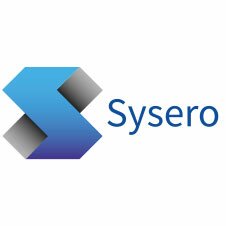The future of law: five key trends shaping legal technology in 2025 according to Sysero
As we approach 2025, the legal tech industry is on the brink of significant innovation, set to reshape how legal professionals work, collaborate, and provide client services. Building on the momentum of 2024, where technology drove transformative operational shifts, the coming year will see legal practitioners further embrace advancements to sharpen their competitive edge.
From the rise of sophisticated AI tools to the growing adoption of automation solutions, we explore the pivotal trends that will shape the future of the legal sector in 2025 and beyond.
1. The Continued Rise of AI
Adoption of AI solutions amongst law firms skyrocketed in 2024, with more than 79% of firms now employing some use of AI in legal operations. AI-driven tools have proven crucial in streamlining time-intensive tasks, such as legal research, document review, and contract analysis, allowing lawyers to focus on high-value, strategic work.
Heading into 2025, the rise of AI will continue to revolutionise the legal landscape, driving unprecedented efficiency and innovation. We also expect to see firms explore new ways of leveraging AI-driven solutions, such as to improve knowledge management and make in-house information and data more readily available to relevant parties within a firm.
2. AI-Driven Knowledge Management
One area where AI is making a substantial impact is in the realm of knowledge management. Law firms often have vast amounts of information and knowledge spread across the firm in disparate systems, making it difficult to access. However, advanced tools like Sysero are making it possible for law firms to pair their knowledge bases with ChatGPT, enabling lawyers to access the firm’s knowledge base via natural language processing.
The year ahead is certain to bring new innovations in the space and expand the ability for law firms to leverage AI-tools like ChatGPT to access knowledge, draft contracts, and ultimately deliver a better client service.
3. Enhanced Data Security
With the greater adoption of AI also comes increased data security concerns. Public AI tools process input data on external servers, which raises concerns about inadvertent data exposure or misuse during input and processing. As the use of AI continues to rise, law firms must adopt robust cybersecurity measures to mitigate these risks while ensuring compliance with evolving data protection regulations.
Balancing AI innovation with proactive security strategies will be critical to safeguarding client trust and maintaining operational integrity in the year ahead. Fortunately, tools like Sysero’s ChatGPT API, leverage an AI framework called Retrieval-Augmented Generation (RAG) to enable firms to pair ChatGPT with their internal systems in a secure and reliable way.
4. Expanded Adoption of Low-Code/No-Code Solutions
In the year ahead, law firms will increasingly adopt low-code and no-code platforms to enhance operational efficiency and adaptability without requiring deep technical expertise. These solutions empower legal teams to design and customise workflows, such as automating document generation, client intake processes, and compliance tracking, all through intuitive drag-and-drop interfaces.
Law firms such as Mills & Reeve are already using low-code tools to facilitate rapid integration with existing systems, allowing them to scale and adapt technology to meet evolving client demands. As we head into 2025, we can expect to see more firms adopt low-code/no-code platforms to innovate faster, while focusing on delivering value-driven legal services.
5. Diverse Technology Ecosystems
As we head into a new year, law firms will continue to leverage an array of technologies, with workflow automation leading the charge, to enhance operational efficiency and remain competitive. Automated tools will streamline repetitive tasks such as client intake, billing, and document management, reducing manual effort and improving accuracy. Integration with advanced legal practice management platforms will enable seamless data flow, fostering better collaboration and real-time insights across teams.
Beyond automation, firms will adopt cloud-based solutions for scalability, AI-driven tools for efficiency, and low-code platforms for customizable workflows. By embracing this diverse tech ecosystem, law firms can optimise resources, accelerate timelines, and deliver a higher standard of service while focusing on strategic growth and client-centric innovation.
The Year Ahead
The legal landscape is continually evolving and is certainly due for more change in the year ahead. There’s no doubt that technology will play a significant role in the law firm of 2025, and we expect it will be all about tapping into new ways to drive enhanced efficiency, deliver better client service and ensure tighter data security.
To talk about evolving your firm in 2025, get in touch with our team!



